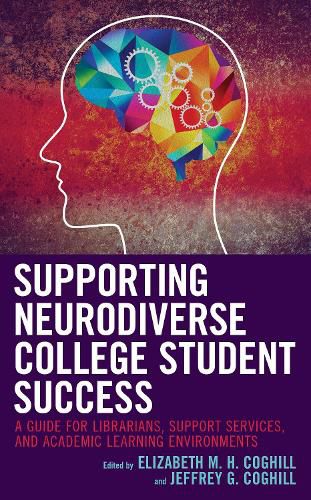Readings Newsletter
Become a Readings Member to make your shopping experience even easier.
Sign in or sign up for free!
You’re not far away from qualifying for FREE standard shipping within Australia
You’ve qualified for FREE standard shipping within Australia
The cart is loading…






The basic premise of neurodiversity is that there is no normal baseline for brain processes, but that all individual brains vary and therefore are diverse. The CAST organization estimates that 11% of college students enrolling in post-secondary campuses having a learning disability or learning difference. As neurodiverse students enroll in post-secondary education, the environments within which these students learn, can either support or impede their ability to succeed. Simply put, a neurodiverse campus population means that educators recognize that all students process and learn differently and must adapt our approaches and services in order to reach and support all students enrolled on our campuses. Neurodiverse students are a growing population on today’s college campus. Their growing presence prompts new approaches to support their success and change traditional student services and collegiate experiences. This practical guide: Assists readers in better understanding neurodiverse students and the way campus services can create welcoming environments Explores the role Universal Design for Learning (UDL) and Executive Functioning (EF) plays in student success, and Focuses on specific collegiate offices and services that effectively address the needs of neurodiverse learners. Chapters cover tutoring, learning supports, academic coaching, academic advising, career services, residential living, and classroom experiences that impact and assist neurodiverse college students.
$9.00 standard shipping within Australia
FREE standard shipping within Australia for orders over $100.00
Express & International shipping calculated at checkout
The basic premise of neurodiversity is that there is no normal baseline for brain processes, but that all individual brains vary and therefore are diverse. The CAST organization estimates that 11% of college students enrolling in post-secondary campuses having a learning disability or learning difference. As neurodiverse students enroll in post-secondary education, the environments within which these students learn, can either support or impede their ability to succeed. Simply put, a neurodiverse campus population means that educators recognize that all students process and learn differently and must adapt our approaches and services in order to reach and support all students enrolled on our campuses. Neurodiverse students are a growing population on today’s college campus. Their growing presence prompts new approaches to support their success and change traditional student services and collegiate experiences. This practical guide: Assists readers in better understanding neurodiverse students and the way campus services can create welcoming environments Explores the role Universal Design for Learning (UDL) and Executive Functioning (EF) plays in student success, and Focuses on specific collegiate offices and services that effectively address the needs of neurodiverse learners. Chapters cover tutoring, learning supports, academic coaching, academic advising, career services, residential living, and classroom experiences that impact and assist neurodiverse college students.